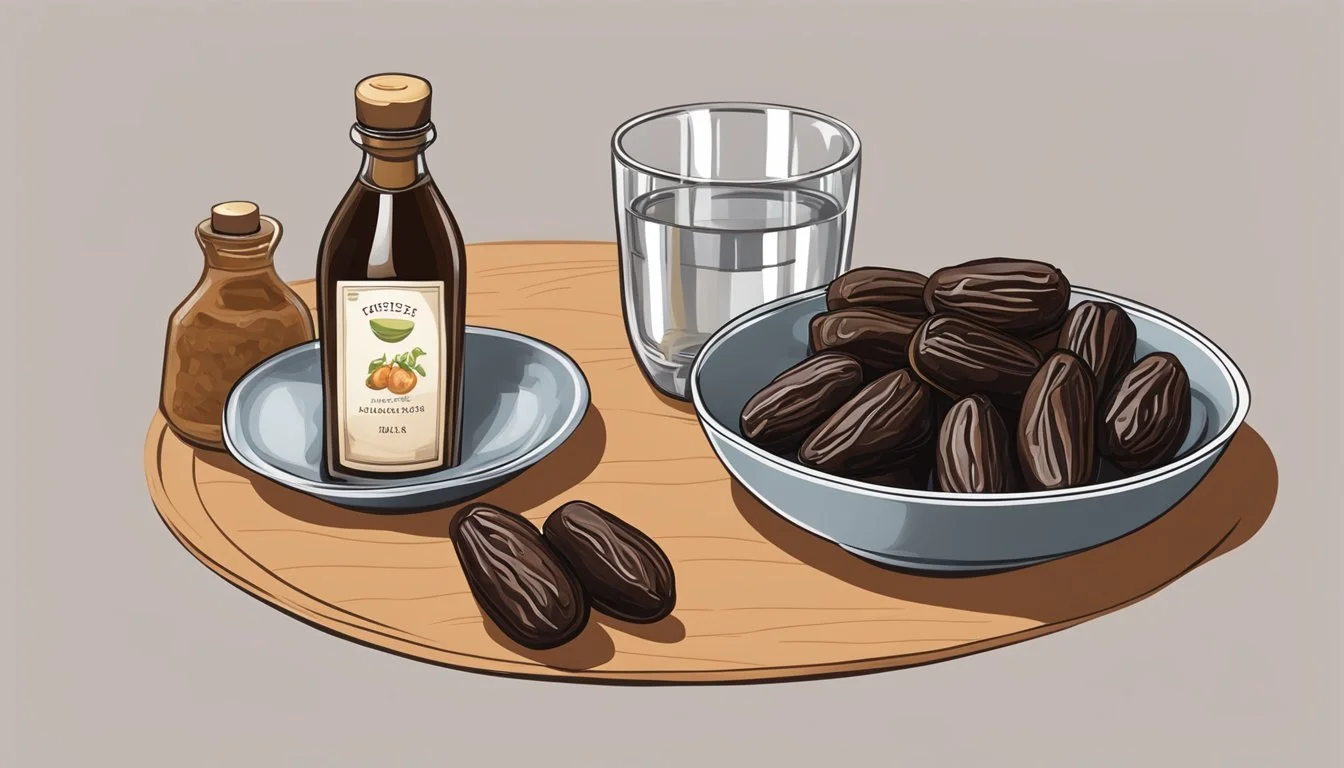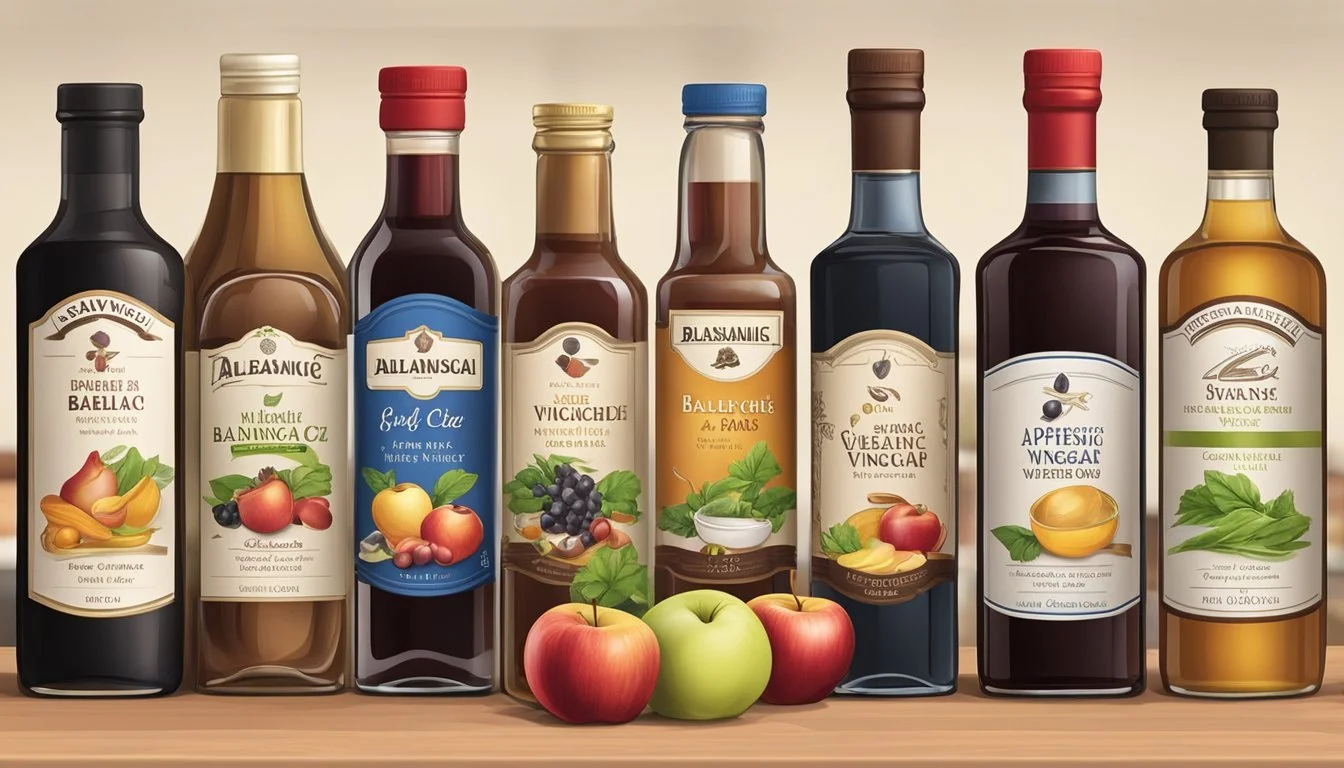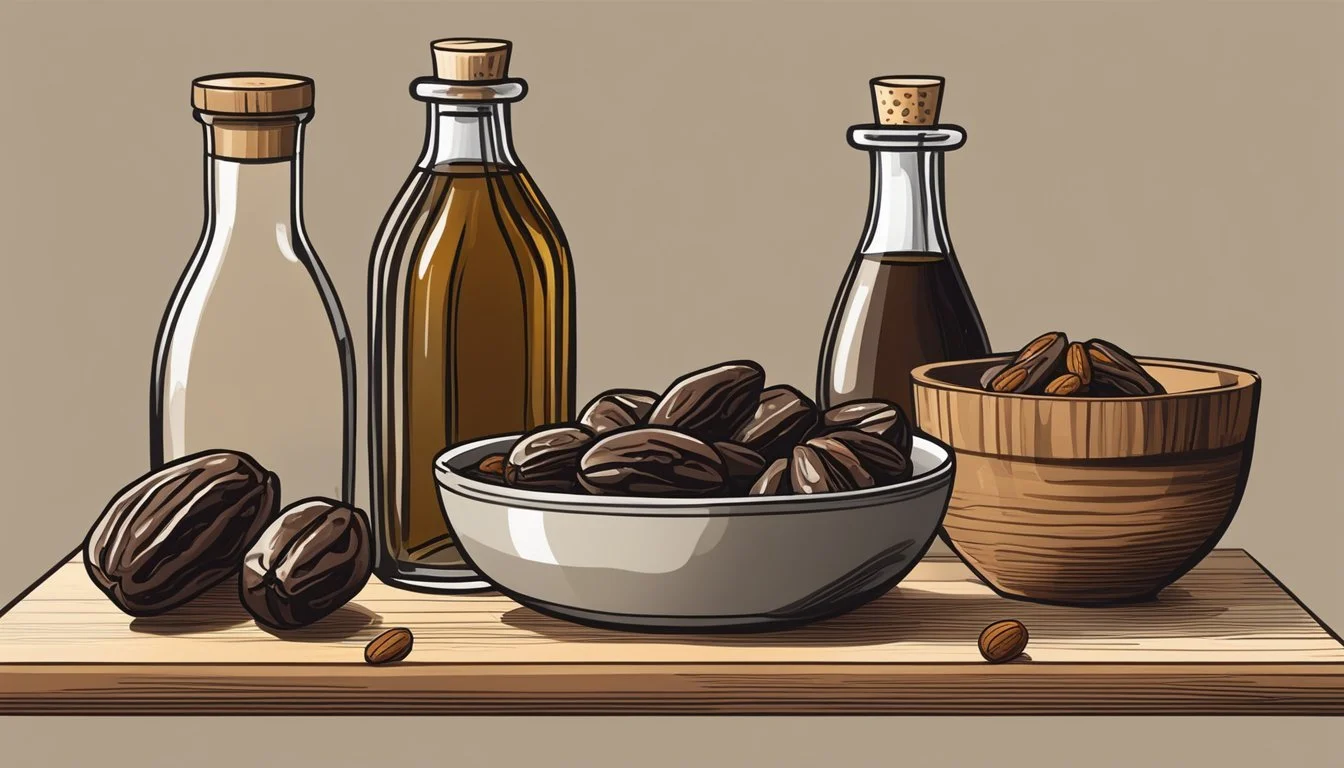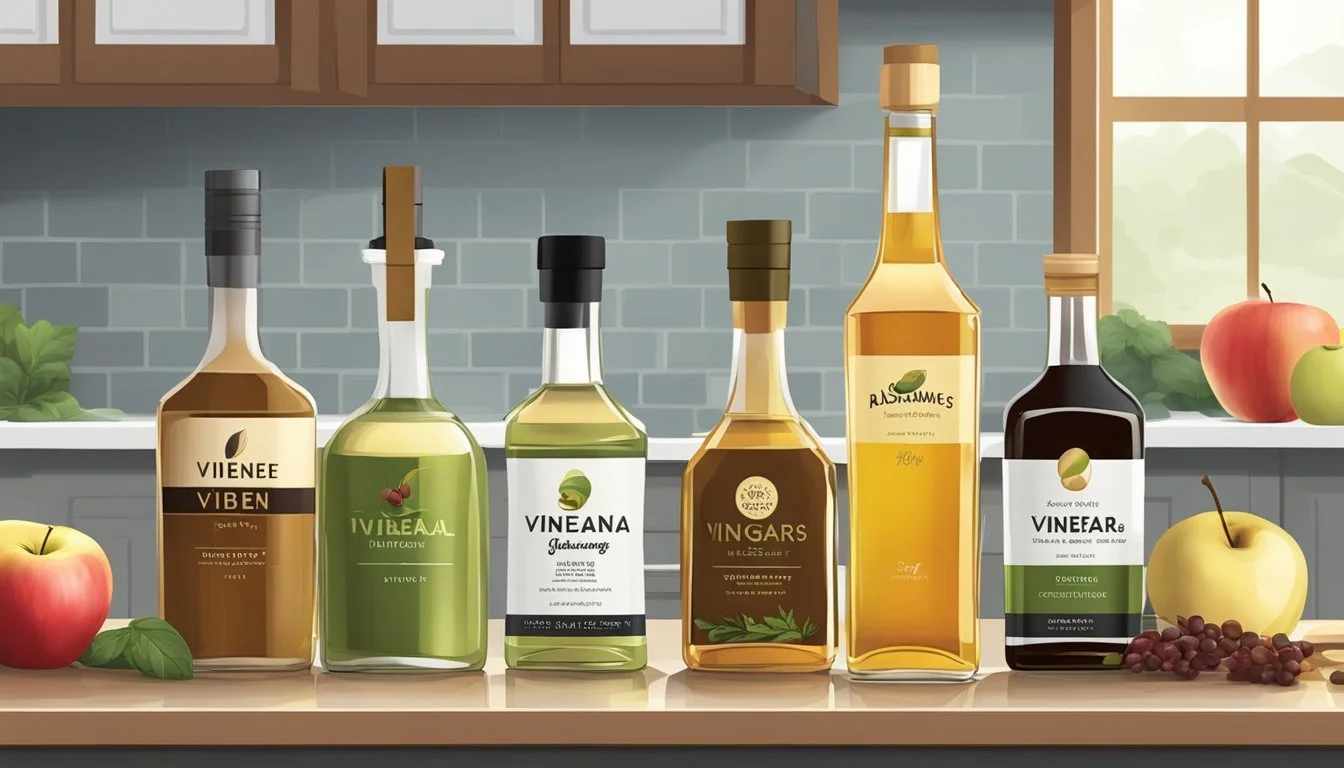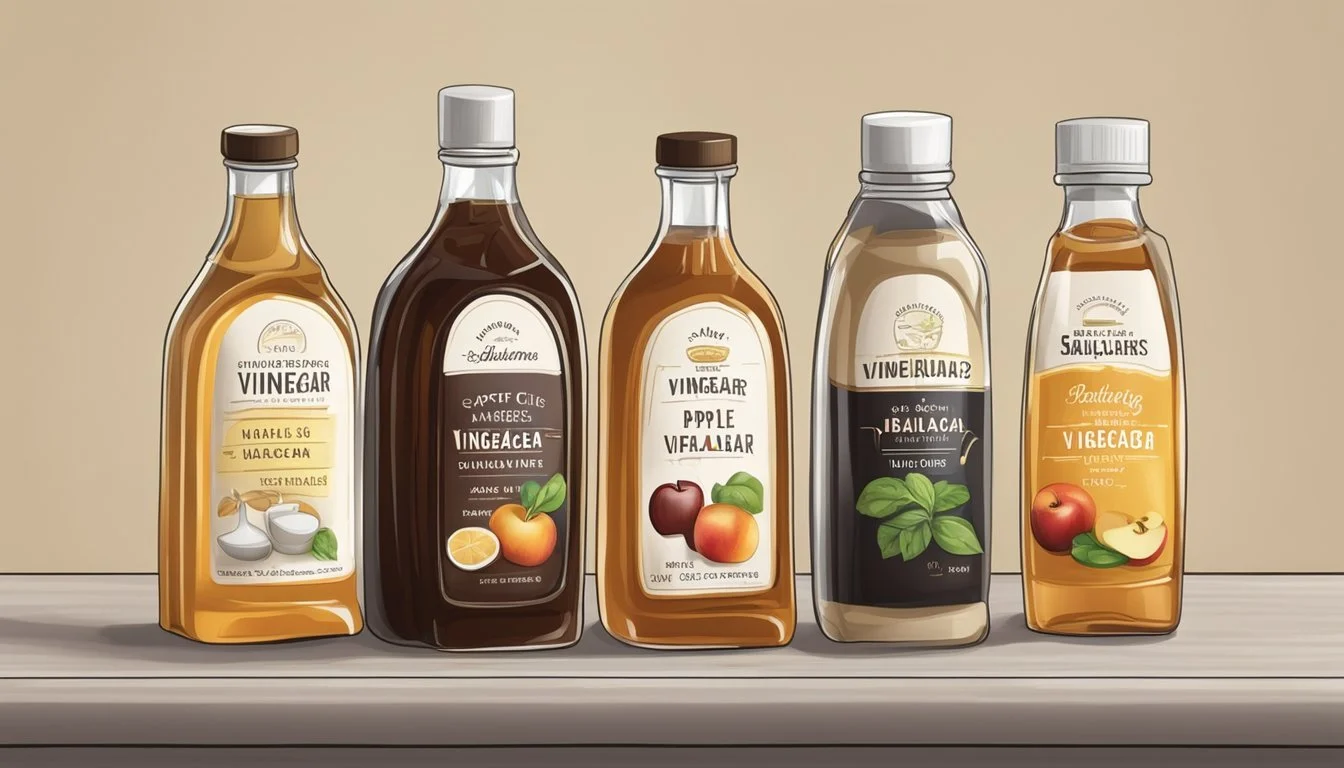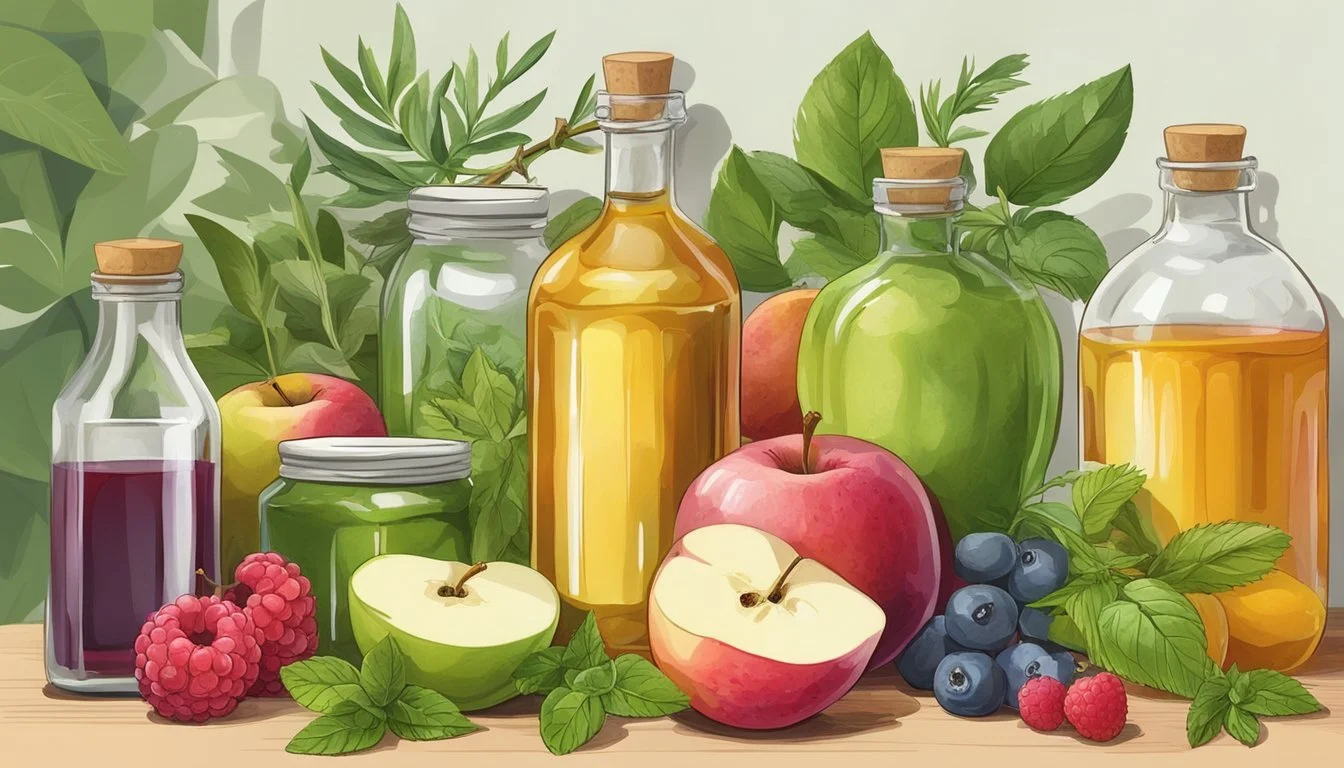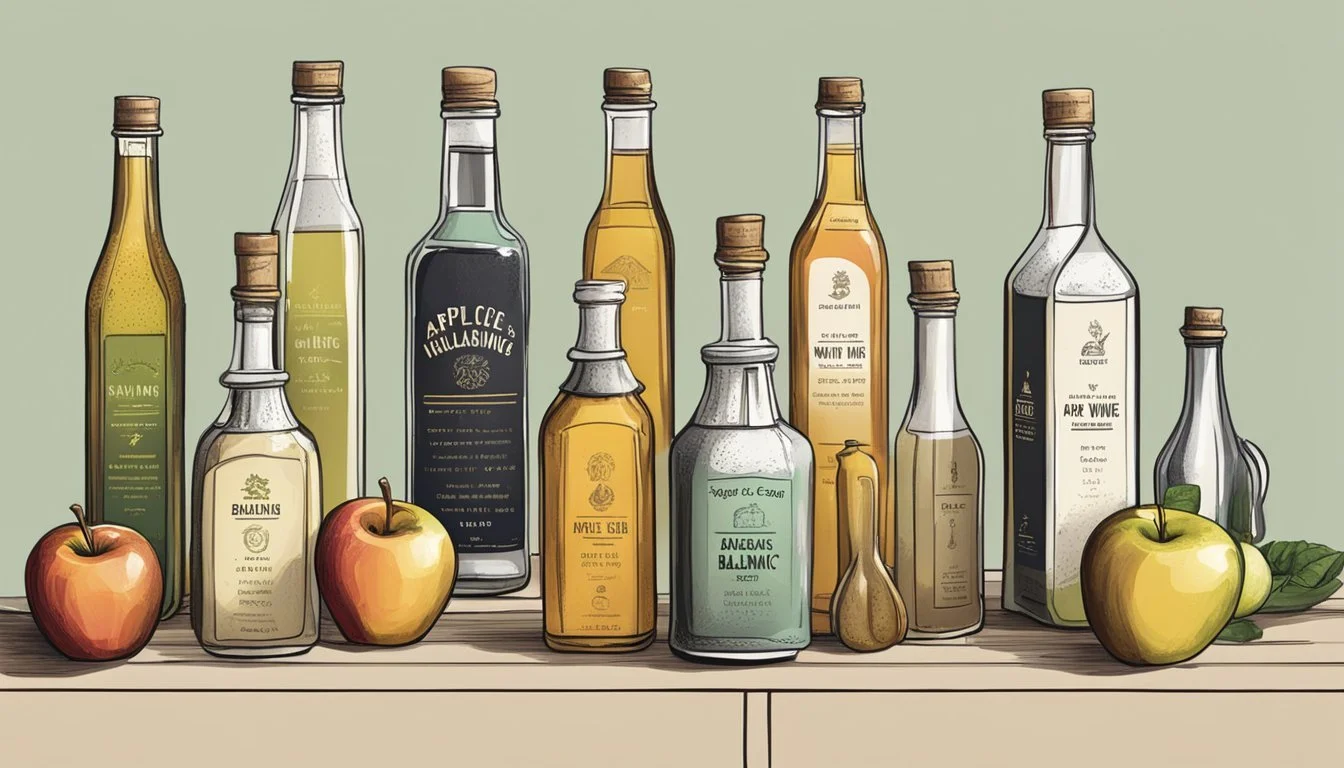Date Vinegar Substitutes
Top Alternatives for Your Cooking Needs
Date vinegar, an ingredient with a rich history in culinary arts, is prized for its unique sweet and tangy flavor profile, derived from fermented dates. This versatile vinegar is often a key component in various recipes, including marinades, dressings, and sauces, adding a distinctive taste that sets it apart from other vinegars. However, it is not always readily available in every pantry or grocery store, prompting cooks to seek suitable substitutes that can mimic its flavor and acidity.
When a recipe calls for date vinegar and it's absent from the kitchen shelf, it's useful to know which alternatives can take its place without significantly altering the dish's intended taste. Vinegars like apple cider, balsamic, and even certain citrus juices can provide a comparable acidity and sweetness. Each substitute offers its own unique set of flavors, which can be harnessed to come close to the original recipe's profile. Understanding the characteristics of these substitutes helps maintain the balance and harmony of flavors in culinary creations.
Understanding Vinegar and Its Role in Cooking
Vinegar is a versatile ingredient known for its distinctive flavor and acidity. In cooking, it transcends being merely a condiment, playing a pivotal role in a variety of culinary applications. The acidic nature of vinegar is crucial for adding zest and enhancing the flavors of food.
Uses of Vinegar in Cooking:
Marination: Vinegar tenderizes meat by breaking down fibers.
Salad Dressings: Balances oil and enhances taste in vinaigrettes.
Pickling: The acid content preserves and imparts tanginess to vegetables.
Baking: Reacts with baking soda for leavening baked goods.
Sauces: Adds complexity and sharpness to sauces and dips.
Each variety of vinegar carries its own flavor profile and level of acidity, which should be considered when used in cooking. The common types of vinegar include apple cider, white, balsamic, and rice vinegar. They differ in their source materials and processes, impacting their suitability for different recipes.
Flavor Matching:
Mild Vinegars: Rice or white wine vinegar pair well with delicate dishes.
Robust Vinegars: Balsamic or sherry vinegar complement heartier flavors.
Vinegar should be used with a discerning eye to its impact on the overall dish. Overuse can overpower other ingredients, but when used in moderation, vinegar elevates the taste, texture, and aroma, ensuring a balanced and enjoyable culinary experience.
Date Vinegar Overview
Date vinegar is made from dates, a sweet fruit from the date palm tree. This type of vinegar boasts a unique flavor profile that combines the inherent sweetness of dates with a tangy acidity. In terms of taste, it's known for a milder sweetness compared to other vinegars, offering a harmonious blend that lends itself well to various culinary applications.
Taste & Sweetness: Date vinegar carries a nuanced sweet flavor, less sharp than its counterparts made from grains or other fruits. The sweetness level is well-balanced, making it a versatile ingredient in both sweet and savory dishes.
Flavor Profile: It has a distinct character — a mellow tartness infused with the caramel notes of dates. This rich flavor is ideal for enhancing sauces, dressings, and marinades.
Uses in Cuisine:
Salad Dressings: Adds a subtly sweet zing.
Marinades: Imparts a tenderizing acidity to meats.
Dipping Sauces: Provides a complex taste dimension.
Glazes: Offers a glossy, flavor-packed coating.
In the culinary world, date vinegar is a valued ingredient for its capacity to enrich food with a depth of flavor without overpowering the dish. Its unrivaled sweetness and tang make it a sought-after alternative to more commonly used vinegars. Whether it is drizzled over roasted vegetables, whisked into a vinaigrette, or used as a finishing touch to grilled dishes, date vinegar's multifaceted flavor is sure to elevate the taste experience.
Identifying Suitable Date Vinegar Substitutes
When one is looking to replace date vinegar in a recipe, they might consider a variety of other vinegar types that maintain the desired flavor profile. Here are some viable options:
Apple Cider Vinegar: This substitute carries a fruity undertone that complements dressings and marinades, similar to date vinegar.
Balsamic Vinegar: With its rich and slightly sweet flavor, balsamic vinegar can be a suitable alternative, especially in reductions and glazes.
Red Wine Vinegar: For those seeking a more robust flavor with a fruity note, red wine vinegar can act as an effective substitute.
It is essential to consider the intensity of the vinegar when substituting, as the flavors can vary significantly. Here's a simple guide to assist with the substitution ratios:
Date Vinegar Substitution Ratio 1 tbsp Apple Cider Vinegar 1:1 1 tbsp Balsamic Vinegar 1:1 1 tbsp Red Wine Vinegar 1:1
When using vinegar substitutes, one should adjust the amount based on personal taste preferences and the specific requirements of the recipe they are following. If the recipe calls for a sweeter note, they could add a pinch of sugar or honey to balance the taste.
Additionally, non-vinegar options such as lemon or lime juice might also suffice in some dishes, offering a different but equally tangy dimension to the meal. These substitutes should be used sparingly, with a ratio of around two-thirds of lemon or lime juice to one part of date vinegar, adjusted to taste.
Common Vinegar Substitutes
When cooking or dressing salads, one might encounter the need to substitute various vinegars. The following outlines suitable replacements that preserve the intended flavor and acidity of the original ingredient.
Balsamic Vinegar
For balsamic vinegar, a staple in salad dressings and marinades, an effective substitute is a combination of cider or red wine vinegar with a bit of sugar. Specifically, for 1 tablespoon of balsamic vinegar:
1 tablespoon cider vinegar or
1 tablespoon red wine vinegar
Add ½ teaspoon sugar for sweetness.
Apple Cider Vinegar
Apple cider vinegar, known for its mild and fruity flavor, is versatile and often used for its health benefits. It can be replaced in a recipe with an equal amount of:
Lemon or lime juice for a citrus twist
White wine which preserves the essence of the original flavor
Use a 1:1 ratio for replacements.
White and Red Wine Vinegar
Both white and red wine vinegars are commonly used in vinaigrettes and sauces. Suitable substitutes are:
For white wine vinegar: Apple cider vinegar or rice vinegar
For red wine vinegar: Balsamic vinegar (add sugar) or apple cider vinegar
Maintain equal parts when substituting.
Rice Vinegar
Rice vinegar is often used in Asian dishes such as stir-fries and sushi due to its mild and sweet flavor. It can be replaced with:
White wine vinegar or apple cider vinegar as a 1:1 substitute
For seasoned rice vinegar, reduce sugar and salt in the recipe accordingly.
Malt Vinegar
This vinegar, with a unique sweetness, is often paired with fish and chips. Malt vinegar can be substituted with:
Apple cider vinegar, which has a similar acidity and flavor profile.
Adjust sweetness if needed to match the dish's profile.
Champagne Vinegar
Known for its light and delicate flavor, champagne vinegar is ideal for light dressings. It can be replaced by:
White wine vinegar which has a similar profile
Keep a 1:1 ratio when substitutin
Sherry Vinegar
Sherry vinegar, with its rich and nutty flavor, is a highlight in Spanish cuisine and adds depth to soups and sauces. Substitute with:
Balsamic vinegar or red wine vinegar mixed with a pinch of sugar to balance sweetness.
Ensure an equal-volume exchange for the closest match.
Fruit-Based Substitutes for Date Vinegar
Fruit-based alternatives are excellent choices when date vinegar is unavailable, offering a range of flavors and acidic profiles suitable for various culinary applications.
Lemon and Lime Juice
Lemon and lime juice stand out as prime substitutes, bringing a bright acidity and citrus flavor that enhances freshness in dishes. Their high acid content makes them excellent for salad dressings and marinades, where the sharp zesty taste complements other ingredients.
Taste: Sharp, tangy
Flavor Profile: Distinct citrus aroma
Best Used In: Salad dressings, marinades
Raspberry Vinegar
Raspberry vinegar offers a fruit-forward tang with a balance of sweetness and acidity, making it a flavorful counterpart to date vinegar. Its berry notes and vibrant fruitiness can elevate salad dressings and add complexity to sauces without overpowering the dish.
Taste: Sweetly tart
Flavor Profile: Berry-like, fresh
Best Used In: Fruit salads, glazes, sweet marinades
Black Vinegar
For depth and an umami-rich profile, black vinegar serves as a robust substitute. It is less about matching sweetness and more about adding a full-bodied complexity, often employed in Chinese cuisine where its malt flavor complements soy sauce and sesame oil.
Taste: Mildly sweet, smoky
Flavor Profile: Earthy with notes of umami
Best Used In: Dipping sauces, stir-fries, braised meats
These fruit-based vinegars can be swapped in to introduce a twist of flavor while maintaining the intended acidity and taste balance in your culinary creations.
Non-Vinegar Alternatives
When date vinegar is unavailable, one can resort to various non-vinegar alternatives that offer distinct tastes and acidity levels. These alternatives may not mimic the exact flavor profile of vinegars but can impart a suitable tanginess and aroma to dishes, particularly sauces.
Citrus Zests
Citrus zests, specifically from lemon and lime, provide a punch of aroma with a tangy flavor. They are ideal for adding a spark of brightness to a recipe without the liquid component of vinegar. The zest contains the fruit’s essential oils, which are potent in flavor.
Lemon Zest: Offers a bright and slightly sweet tanginess, suitable for dressings and light sauces.
Lime Zest: Gives a sharp, tropical twist that pairs well with Thai and Mexican cuisine.
Tamarind Paste
Tamarind Paste is another alternative with a sour and slightly sweet profile. Its acidity can be likened to that of vinegar, making it appropriate for replicating the tanginess that one would seek from date vinegar.
Flavor: Tamarind paste delivers a more complex and less astringent taste compared to regular vinegar.
Use in Sauces: Incorporating it into sauces can lend both a desirable acidity and a hint of sweetness.
The key to utilizing these substitutes rests in the balance of their flavors with the other ingredients within the recipe.
How to Substitute Vinegars in Recipes
When modifying a recipe that calls for vinegar, choosing the right substitute is crucial to maintain or improve the intended taste and quality of the dish. Substitutes will vary based on the type of vinegar required by the original recipe.
Balsamic Vinegar: This vinegar is known for its complex sweetness. If a recipe requires balsamic vinegar and it's not available, one can mix cider vinegar or red wine vinegar with sugar to achieve a comparable flavor profile.
Original Vinegar Substitute (per 1 tablespoon) Balsamic Vinegar 1 tbsp Cider Vinegar + ½ tsp Sugar or 1 tbsp Red Wine Vinegar + ½ tsp Sugar
Apple Cider Vinegar: Renowned for its mild and fruity notes, apple cider vinegar is a versatile ingredient. It's often used in dressings and marinades. Lemon or lime juice can be used as alternatives, offering a similar acidity and freshness to dishes.
Original Vinegar Substitute (per 1 tablespoon) Apple Cider Vinegar 1 tbsp Lemon Juice or 1 tbsp Lime Juice
White Vinegar: For recipes calling for white vinegar, the best substitutes to consider are white wine vinegar or apple cider vinegar, which provide a similar clean, acidic punch without any overpowering flavor.
Original Vinegar Substitute White Vinegar 1:1 White Wine Vinegar or 1:1 Apple Cider Vinegar
Each alternative offers a way to replace the original ingredient without significantly altering the dish's intended flavor. However, it's important to note that although these substitutes can be used, they may not provide the same health benefits or unique flavors associated with the original vinegar.
Creative Use of Vinegar Substitutes in Different Dishes
In the culinary world, vinegar is a staple for adding a burst of acidity and brightness to dishes. However, when date vinegar is unavailable, a chef must be adept at utilizing alternatives to achieve a similar flavor profile.
For stir-fries, a splash of acidity can enhance the umami flavor. If date vinegar is out of reach, they can opt for white wine vinegar or a tangy lemon juice. These substitutes harmonize with the savory notes of soy sauce and the richness of sesame oil commonly used in these dishes.
When crafting salad dressings, the use of vinegar is crucial for its sharp notes. In its absence, apple cider vinegar provides a fruity undertone which is milder than the date vinegar but still brings life to leafy greens. One might also consider lime juice, for its zesty kick, as a closer flavor match for salad dressings requiring date vinegar.
Marinades rely on vinegar's acidity to tenderize proteins while infusing them with flavor. In such cases, they may use a combination of balsamic vinegar and a pinch of sugar as a substitute to mimic the sweetness and complexity of date vinegar.
In the case of slow-cooked stews, they often incorporate vinegar to contrast the rich, deep flavors. A robust substitute like red wine vinegar can stand up to the long cooking times and impart a similar depth. For a subtler touch, diluted tamarind paste, with its sour and slightly sweet profile, serves as an intriguing stand-in for date vinegar.
Substitute Use-Case Example White Wine Vinegar Stir-fries Apple Cider Vinegar Salad Dressings Balsamic Vinegar Marinades Red Wine Vinegar Stews Lemon/Lime Juice General Purpose
Dishes are not only about taste but also about balance. The right vinegar substitute not only serves a functional purpose but also contributes to the harmony of flavors within a dish. A discerning chef understands this and selects their vinegar substitutes with precision and artistry.
Health Considerations When Choosing a Vinegar Substitute
When one is selecting a vinegar substitute, they must consider not only the taste but also the health benefits and sugar content associated with the alternative. Vinegar itself is low in sugar and calories, while also providing potential health benefits, such as blood sugar regulation and antimicrobial properties.
Options for Vinegar Substitutes:
Apple Cider Vinegar: Often acclaimed for its potential health benefits, including weight loss aid and improved heart health due to the presence of acetic acid and antioxidants.
Lemon juice: A vitamin C-rich, low-sugar option that can mimic the acidity in vinegar for salad dressings and marinades.
Balsamic Vinegar: Though it has a similar fruity undertone to apple cider vinegar, it typically contains a higher amount of sugar, making it a sweeter, less favorable option for those monitoring their sugar intake.
Substitute Sugar Content Notable Health Benefits Apple Cider Vinegar Low May aid in weight loss, improve heart health Lemon Juice Low Rich in vitamin C, beneficial for immune system Balsamic Vinegar High Contains antioxidants, but higher in sugar
Individuals with diabetes or those tracking their carbohydrate consumption should opt for substitutes with lower sugar content. Moreover, those with specific dietary restrictions should always check labels to ensure the substitute aligns with their nutritional needs.
One must choose a substitute that aligns with their health objectives and dietary considerations, given the various nutritional profiles of possible vinegar alternatives.
DIY Vinegar Substitutes
When a recipe calls for date vinegar and it's not available in your pantry, there are several DIY substitutes one can create using ingredients commonly found at home. These alternatives aim to emulate the complex, fruity flavor profile of date vinegar.
1. Apple Cider Vinegar and Sweetener: A straightforward substitute for date vinegar is apple cider vinegar mixed with a sweetener. The natural fruitiness of apple cider vinegar works well as a base.
Quantity of Date Vinegar Apple Cider Vinegar Sweetener (sugar, honey, or molasses) 1 tbsp 1 tbsp 1/2 tsp
Notes: Choose honey or molasses for a depth of flavor akin to dates. Sugar can be used for a simpler sweetness.
2. Balsamic Vinegar and Sugar: For a richer, more complex substitute, balsamic vinegar with a touch of sugar can fill in for date vinegar. Balsamic vinegar has a natural sweetness and thickness that mimics the luxurious quality of date vinegar.
Ratio Balsamic Vinegar Sugar 1:1 1 tbsp 1/2 tsp
3. Red Wine Vinegar and Sweetener: Red wine vinegar, known for its robust flavor, can also stand in when sweetened slightly.
Quantity of Date Vinegar Red Wine Vinegar Sweetener (preferably honey) 1 tbsp 1 tbsp 1/2 tsp
It's imperative that adjustments are made to taste, considering the variance in the sweetness of date vinegar and the substitutes being utilized. They provide a similar profile, which can be tweaked depending on whether the recipe requires a tangy edge or a more pronounced sweetness.
Frequently Asked Questions About Vinegar Substitution
What can I use instead of vinegar in baking? In baking, one may substitute 1 tablespoon of vinegar with 1 tablespoon of lemon juice or a quarter teaspoon of cream of tartar. These substitutes maintain the acidity required for the chemical reactions in baking.
Is there a replacement for vinegar in pickling? For pickling, substitutes should still have a high acidity level. One can use lemon or lime juice as a natural substitute. Always ensure the acidity is at least 5% to preserve the food safely.
Can vinegar substitutes affect the aging process in recipes? Yes, they can. Vinegar undergoes an aging process to develop its flavors, so substitutes might alter the intended flavor profile. For instance, while balsamic vinegar can be replaced by a mixture of cider vinegar and sugar, the depth and complexity of aged balsamic vinegar may not be fully replicated.
What are common substitutes for white wine vinegar? Common substitutions for white wine vinegar include equal parts of apple cider vinegar or lemon juice. In certain recipes, one might also use 2 parts of white wine as an alternative.
Is it possible to create a homemade vinegar substitute? Yes, one can mix 1 part apple juice with 1 teaspoon of lemon juice to mimic apple cider vinegar. This blend will provide a similar fruity acidity to dishes.
Remember, when substituting vinegars, consider both the flavor profile and the functional properties in the recipe—like acidity levels for pickling or leavening in baking—to achieve the best result.

